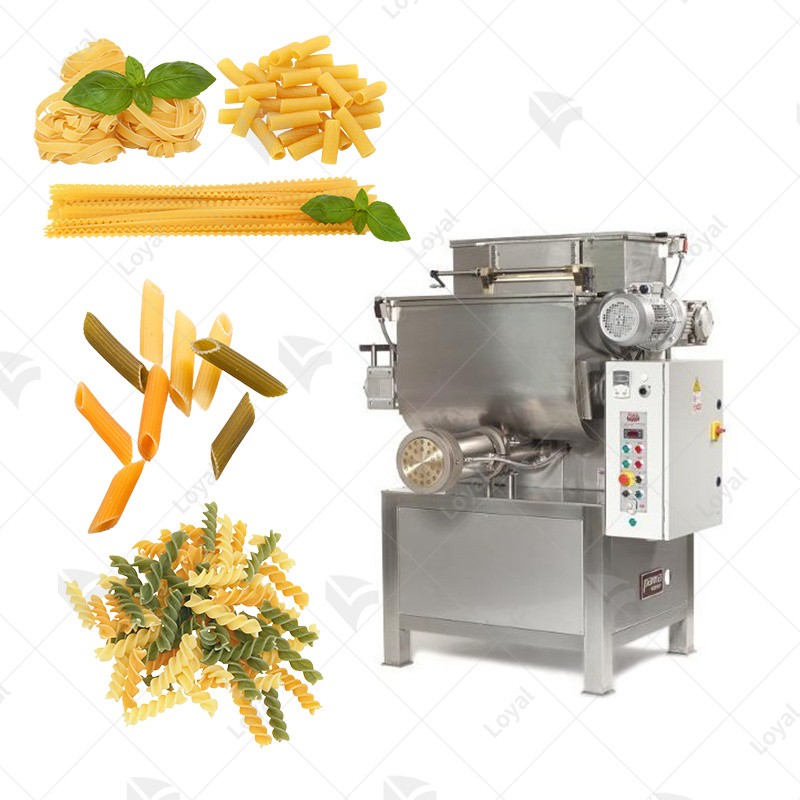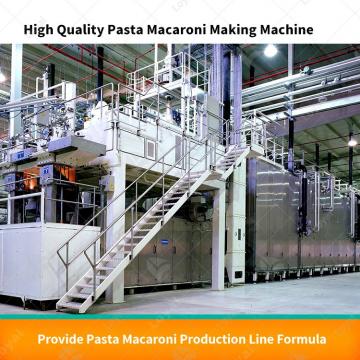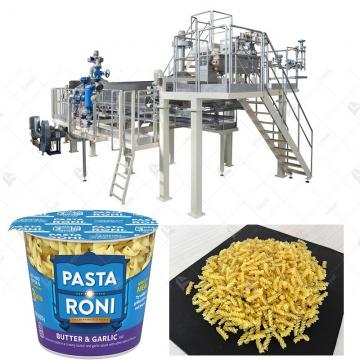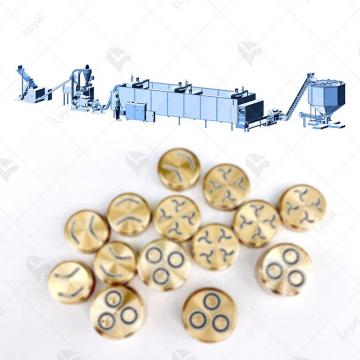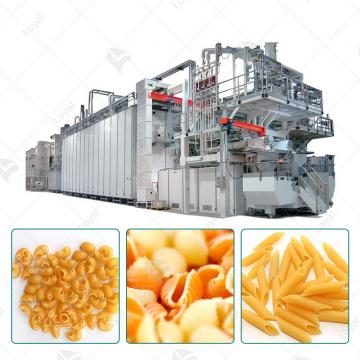Automated Precision: Manufacturers of Pasta Revolutionize Operations with High-Efficiency Solutions
Automated Precision: Manufacturers of Pasta Revolutionize Operations with High-Efficiency Solutions
Introduction
The Short-Cut Pasta Production Line technology of Shandong Luoya Industrial Co., Ltd. has introduced advanced technologies from HEMAKS and Capitanio.The pasta manufacturing industry has undergone significant transformations over the years, evolving from traditional manual methods to more advanced and automated precision technologies. As consumer demands for high-quality pasta products continue to rise, manufacturers are exploring innovative solutions to revolutionize their operations.
The history of pasta production is deeply rooted in manual processes that have been time-consuming and labor-intensive. However, with advancements in technology, especially in the field of automated precision, manufacturers are now able to overcome the challenges posed by traditional methods.
The significance of automated precision in pasta manufacturing cannot be overstated. It not only addresses the inefficiencies associated with manual processes but also introduces a new era of high-efficiency solutions that streamline operations, enhance quality control, and boost overall productivity.

Traditional Challenges in Pasta Production
Historically, pasta production relied heavily on manual labor, leading to inefficiencies and a higher risk of errors. Automated precision technologies, however, have revolutionized this aspect by introducing machinery that can handle tasks with unparalleled accuracy and speed.
Maintaining consistent quality has been a longstanding challenge in the pasta industry. Automated precision equipment, equipped with advanced sensors and monitoring capabilities, ensures a higher level of quality control throughout the production process, meeting the stringent standards set by both manufacturers and consumers.
Traditional pasta production faced limitations in terms of production speed and capacity. The emergence of high-efficiency solutions, driven by automated precision technology, has mitigated these inefficiencies, enabling manufacturers to meet growing demands and compete in a dynamic market.
Emergence of High-Efficiency Solutions
Automated precision technology in pasta manufacturing involves the use of state-of-the-art machinery and computer-controlled processes. This not only expedites production but also minimizes the margin of error, resulting in consistently high-quality pasta products.
Modern pasta manufacturing equipment incorporates features such as robotic arms, automated mixing and extrusion processes, and real-time data analytics. These features collectively contribute to a more efficient and precise production line.
The advantages of automated precision over traditional methods are multifaceted. Increased production speed, higher quality assurance, and reduced operational costs are just a few of the benefits that position automated precision as a game-changer in the pasta manufacturing industry.

Pasta Equipment for Sale: A Market Overview
The market for pasta equipment has witnessed a surge in demand, driven by the growing adoption of automated precision solutions. Analysis of current trends reveals a shift towards more advanced and technologically sophisticated equipment.
Prominent manufacturers such as Barilla, Banza, Jovial, DeLallo, and Faella have been at the forefront of providing cutting-edge pasta equipment for sale. Their offerings not only meet industry standards but also cater to the diverse needs and preferences of consumers.
Consumer preferences are evolving, with a heightened focus on quality, variety, and sustainability. The pasta equipment market responds to these preferences by offering a range of options that align with industry demand for efficient, high-performance machinery.
Case Studies: Successful Implementation of Automated Pasta Equipment
Barilla, a leading brand, implemented automated precision equipment, resulting in a remarkable increase in production capacity by 30%. This case study exemplifies how technology can positively impact a manufacturer's ability to meet market demands.
Rao's Homemade invested in advanced equipment to enhance quality control measures. The result was a significant reduction in product defects, showcasing the effectiveness of automated precision in maintaining consistent product quality.
Banza, known for its innovation, experienced improved operational efficiency by integrating state-of-the-art equipment. The streamlined processes led to a 25% reduction in production time, demonstrating the practical advantages of automated solutions.
Considerations for Businesses Looking to Invest
While the initial investment in automated precision technology may seem substantial, a comprehensive cost-benefit analysis reveals long-term savings in labor costs, reduced waste, and increased overall efficiency.
Businesses considering investment in automated pasta equipment should anticipate training and integration challenges. However, with proper planning and support from manufacturers, these challenges can be overcome, ensuring a smooth transition.
To future-proof investments, businesses should opt for equipment that allows for flexibility and easy upgrades. The rapidly evolving landscape of pasta manufacturing technology necessitates a forward-thinking approach to ensure sustained competitiveness.
Future Trends in Pasta Manufacturing Automation
The integration of artificial intelligence (AI) is poised to be a significant future trend. AI-driven systems can optimize production processes, predict maintenance needs, and adapt to changing market demands, marking the next frontier in pasta manufacturing automation.
Consumer consciousness regarding sustainability is influencing the industry. Future trends will see an increased focus on sustainable and eco-friendly pasta manufacturing solutions, aligning with both environmental concerns and consumer preferences.
As the demand for high-quality pasta expands globally, manufacturers are expected to explore new markets. Future trends involve strategic global expansion, considering regional tastes, preferences, and regulatory landscapes.
Conclusion
In conclusion, the adoption of automated precision technology has ushered in a new era for the pasta manufacturing industry. From overcoming traditional challenges to achieving remarkable efficiency gains, the impact is profound and far-reaching.
As we look to the future, the road ahead involves continued innovation, adaptation to emerging technologies, and a commitment to sustainability. Manufacturers, including industry giants like Barilla and innovative players like Banza, will play a pivotal role in shaping the future of pasta production.

Frequently Asked Questions about Pasta Equipment for Sale
How does full automation impact the cost of pasta equipment?
Discover the cost implications of embracing full automation in pasta manufacturing and understand the long-term benefits that contribute to overall cost-effectiveness.
Are there specific training requirements for employees operating automated pasta equipment?
Learn about the training programs and considerations necessary to empower your workforce in effectively operating and maintaining automated pasta equipment.
What role does sustainability play in the selection of pasta equipment for sale?
Explore the growing importance of sustainability in the industry and how businesses can align their values with eco-friendly pasta manufacturing equipment.
How can businesses future-proof their investments in pasta manufacturing technology?
Gain insights into strategies that businesses can employ to ensure their investments in pasta manufacturing technology remain relevant and adaptive to future advancements.

